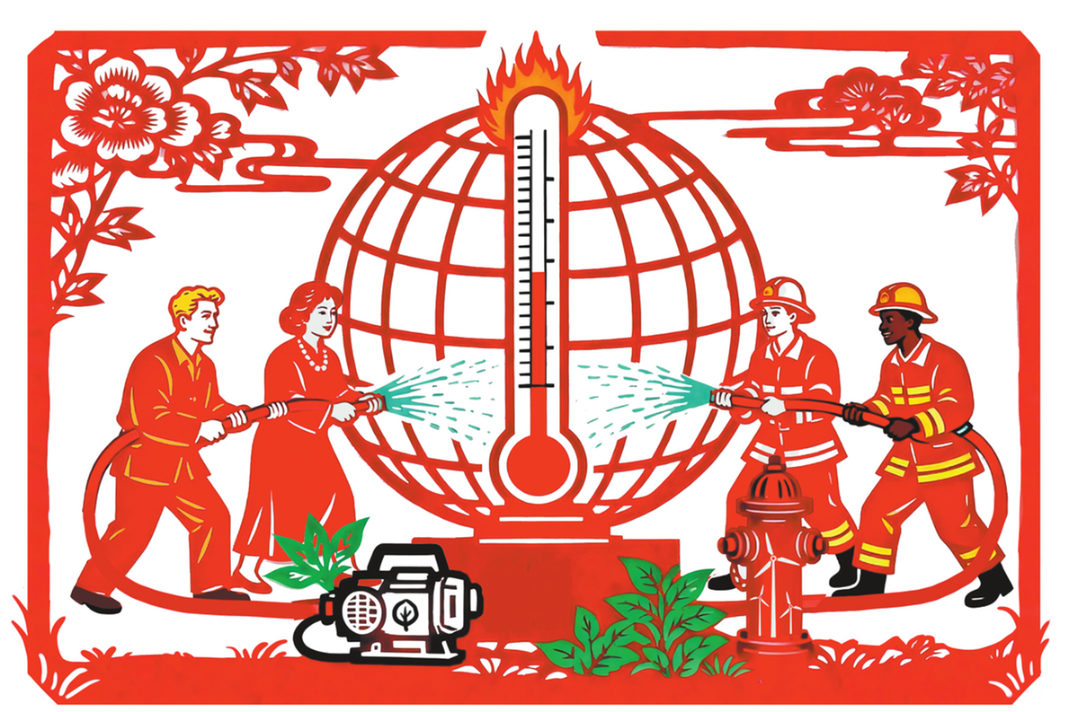Mike Pompeo reveals contempt for legal norms


Grenville Cross says US secretary of state's hypocrisy disqualifies him from criticizing China or any other country over their internal affairs
'The only vice that cannot be forgiven is hypocrisy", said William Hazlitt, the English essayist. Following the enactment of the national security law, US Secretary of State Mike Pompeo condemned China for what he called its attack on "the rule of law", and spewed out threats in all directions. What he meant, of course, was that, once Hong Kong has the capacity to counter foreign interference in its affairs, it will be far more difficult for US agencies to use it as a base for destabilizing China.
Pompeo's own contempt for the rule of law is now notorious, and he uses bully-boy tactics whenever it suits him. One recent example, however, stands out above all others, and shows him in all his glory. His repeated intimidation of the judges and prosecutors of the International Criminal Court has been shocking, and has attracted condemnation in all those places where criminal justice is still valued.
Based in The Hague, the ICC was established, under the auspices of the United Nations, by the Rome Statute in 2002 and is now supported by 123 states. Its mandate is to prosecute war crimes, genocide and crimes against humanity, in circumstances where the perpetrators would not otherwise face justice. It describes itself as being on "a global fight to end impunity, and, through international criminal justice, the Court aims to hold those responsible accountable for their crimes and to help prevent these crimes from happening again". A court of last resort, the ICC acts when a state is unable or unwilling to prosecute grave crimes.
Although the US is not a signatory to the Rome Statute, the ICC has jurisdiction to investigate crimes even where they involve the nationals of a non-member state, provided they occurred on the territory of a member state. The ICC Prosecutor, Fatou Bensouda, previously the minister of justice of the Gambia, and highly regarded in prosecutorial circles, is currently investigating possible crimes committed in Afghanistan, a signatory of the Rome Statute, between 2003 and 2014. These include the mass killings of civilians, allegedly by Taliban fighters, as well as the alleged torture of prisoners by the Afghan authorities, and, to a lesser extent, by US forces and the Central Intelligence Agency.
Under the Rome Statute, the ICC Prosecutor is required to "act independently as a separate organ of the Court" (Article 42). Bensouda, and her prosecutors, must, moreover, be persons of "high moral character, be highly competent in, and have extensive experience in the prosecution or trial of criminal cases". If the Prosecutor is guilty of misconduct or serious breach of duty, then he or she may be removed by the Assembly of States Parties (Article 46).
However, Bensouda's impeccable credentials mean nothing to Pompeo. On April 5, 2019, he revoked her US visa because of her attempts to investigate possible war crimes involving US personnel in Afghanistan. Thereafter, on March 17, 2020, Pompeo singled out two of her subordinates, Sam Shaomanash and Phakiso Mochochoko, and accused them of "helping drive ICC Prosecutor Fatou Bensouda's effort to investigate Americans". He said he was considering "the next steps to be taken" against the two officials, and even raised the prospect of reprisals against their family members. In many places, threats of this sort to ongoing investigations are prosecutable as an attempt to pervert the course of public justice.
Not surprisingly, Pompeo's intimidation of the two officials sparked both domestic and international outrage. In a statement on March 19, a group of six distinguished US prosecutors, led by former US Ambassador and Coordinator for Global Criminal Justice Todd Buchwald, said that Pompeo's "act of raw intimidation of the Prosecutor's staff members is reckless and shocking in its display of fear rather than strength".
Pompeo's conduct, moreover, disgusted prosecutors elsewhere. On May 14, for example, the International Association of Prosecutors condemned "any attempt to interfere with the work of independent prosecutors", adding that any attempt to obstruct the ICC Prosecutor in the discharge of her statutory duties was "a threat to the rule of law".
This, however, was water off the duck's back so far as Pompeo was concerned. After the ICC, despite his threats, gave its approval for the investigation in Afghanistan to proceed, Pompeo announced, on June 12, that the US would "not stand by as our people are threatened by a kangaroo court". He called the ICC corrupt, grossly ineffective and highly politicized. He even made the bizarre claim that the Court was on an "ideological crusade against American service members". He announced that sanctions and visa restrictions were being authorized against ICC officials "directly involved" in investigations of US citizens, adding that designations would be made on a case-by-case basis.
Thereafter, President Donald Trump, presumably on Pompeo's advice, signed an executive order which authorized the blocking of assets and travel restrictions against ICC staff investigating alleged war crimes by US forces in Afghanistan.
Once again, Pompeo's contempt for the rule of law attracted global condemnation. Josep Borrell, the European Union's High Representative, called the US decision "unacceptable and unprecedented in scope and content". Sixty-seven members of the ICC, moreover, in a statement drafted by Costa Rica and Switzerland, and also signed by, for example, Australia, Canada, the United Kingdom, South Africa and Tunisia, expressed their "unwavering support for the Court as an independent and impartial judicial institution". They added that the Court is an "integral part" of the international judicial order, and "a central institution in the fight against impunity".
Richard Dicker, Human Rights Watch's international justice director, welcomed the response of the 67 member states to US intimidation. He said their joint statement "sends the message" that ICC member states "have the Court's back", and "will not be cowed in their commitment to seeing justice".
Quite clearly, Pompeo's utter contempt for international justice has, apart from discrediting himself, done huge damage to his country's standing. His instincts are those of a street thug, who tries to get his way by threats, intimidation and coercion. By his contempt for the rule of law he has forfeited any right to lecture China, or anybody else, on how they should manage their own affairs.
The views do not necessarily reflect those of China Daily.


































